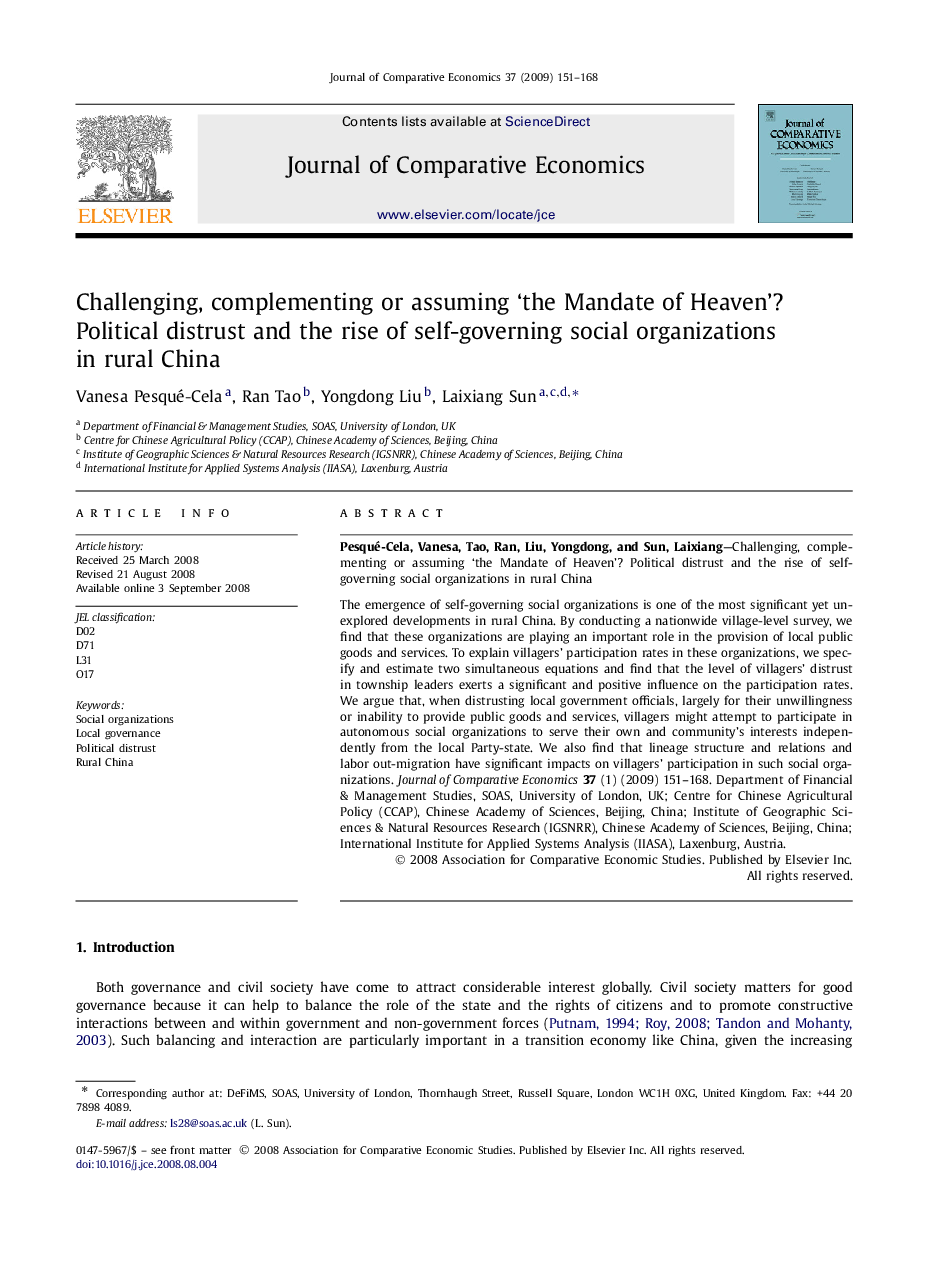| Article ID | Journal | Published Year | Pages | File Type |
|---|---|---|---|---|
| 5092690 | Journal of Comparative Economics | 2009 | 18 Pages |
The emergence of self-governing social organizations is one of the most significant yet unexplored developments in rural China. By conducting a nationwide village-level survey, we find that these organizations are playing an important role in the provision of local public goods and services. To explain villagers' participation rates in these organizations, we specify and estimate two simultaneous equations and find that the level of villagers' distrust in township leaders exerts a significant and positive influence on the participation rates. We argue that, when distrusting local government officials, largely for their unwillingness or inability to provide public goods and services, villagers might attempt to participate in autonomous social organizations to serve their own and community's interests independently from the local Party-state. We also find that lineage structure and relations and labor out-migration have significant impacts on villagers' participation in such social organizations. Journal of Comparative Economics 37 (1) (2009) 151-168.
